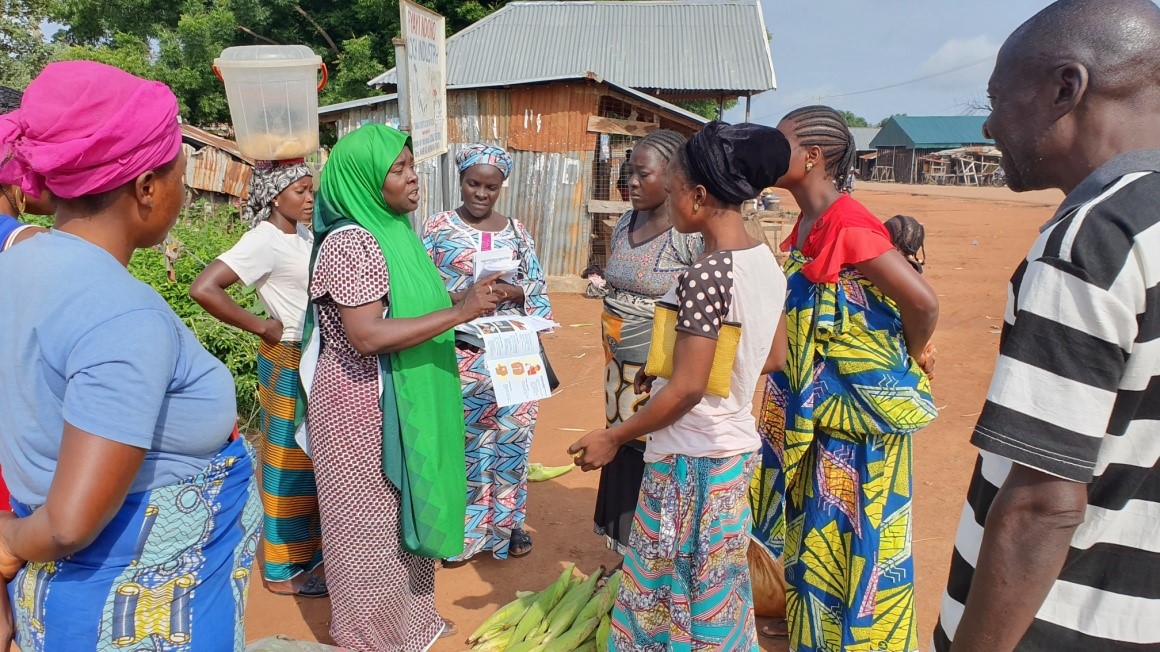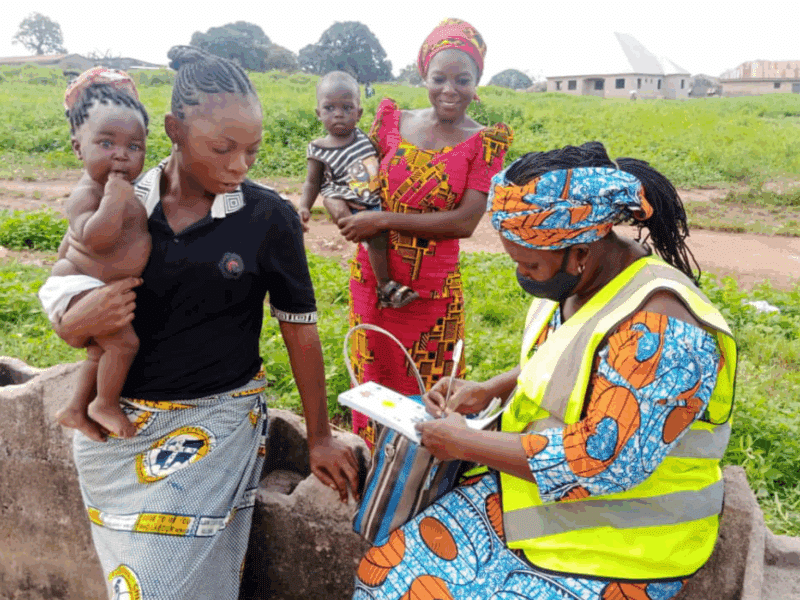In the 10 Nigerian states where it is active, The Challenge Initiative – a family planning project led in Nigeria by the Johns Hopkins Center for Communication Programs – saw more than 100,000 women adopting modern contraception for the first time in the year ending in June.
The Initiative – now in its fourth year – trained 1,257 service providers on how to administer long-acting reversible contraception such as IUDs in year three, ran a media campaign whose messages led to a rise in listeners and viewers who see family planning as a social norm and executed the CCP 72-hour Clinic Makeover in 61 health facilities leading to a large increase in client visits at the facilities that got new equipment and training.
Over the first three years of TCI, more than half a million women have adopted modern contraception.
Reflecting on the first three years of implementation, the project’s leaders say that the work has dramatically increased the financial commitments to family planning made by the governments in the 10 states where TCI is active, with a 23 percent increase in budget allocations made between 2018 and 2019. At the same time, two Nigerian states – Plateau and Bauchi – have adopted the 72-hour clinic makeovers as their own and are solely funding them with government resources.
Built on the achievements of previous efforts to address the reproductive health needs of the urban poor, including the successful CCP-led Nigerian Urban Reproductive Health Initiative (NURHI), the mandate of TCI is to package these proven interventions and help governments to use them on a broader scale. In addition to providing technical support, TCI also provides seed funds while attracting additional investments from other donors and governments with the goal of making modern family planning a sustainable part of life.
“TCI is built as a model of demonstrating sustainable impact at scale and the evidence shows it could be used not just in family planning but in all areas of health,” says CCP’s Victor Igharo, who directs TCI’s efforts in Nigeria. “It’s a confirmation that it’s really possible for governments to lead and drive implementation of family planning activities and to dedicate resources to them.”
TCI is led globally by the Bill & Melinda Gates Institute for Population and Reproductive Health at the Johns Hopkins Bloomberg School of Public Health. It is primarily funded by the Bill & Melinda Gates Foundation with additional investment from Comic Relief, UK and other donors. TCI also implements programs in India, East Africa, and Francophone West Africa.
Research included in TCI Nigeria’s year three report found that women exposed to TCI’s family planning media campaign and messaging were significantly more likely to discuss family size with their spouses, demand and use family planning and try to convince their friends and neighbors to use modern contraception planning than those who had not been exposed.
In Nigeria, all 10 TCI states have now committed some money for family planning in their budgets, bringing about $1 million (US) on the table. And officials are hopeful that financial investments from governments will keep rising.
One focus of the efforts in Nigeria is to increase uptake of modern contraception by women between the ages of 15 and 24. To that end, TCI created 75 adolescent and youth pilot programs in Ogun and Niger states. In these two demonstration states, TCI trained 95 service providers in interpersonal communication and counseling specifically targeted at young women. Religious leaders and local medicine vendors were also equipped with specialized information to reach and inform this population.
As a result, the number of women between 15 and 24 accessing family planning services in these locations increased dramatically between July 2018 and June 2019, with an increase of 261 percent recorded in Ogun state and 112 percent recorded in Niger state. In year four, the adolescent and youth program will expand into two more states.
This year, the Nigeria team plans to add five more states to the TCI program, bringing the number to 15. They also anticipate an additional 103,000 women who have never used contraception before to adopt a modern method.
“We have been able to help create a mindset shift when it comes to contraception,” Igharo says. “We have put government at the center, engaged with communities and created customized solutions that respond to the specific health needs of the population. This has empowered communities to feel they are a critical part of the decision-making process. We are seeing behavior change at the individual and the community level and igniting a large-scale transformation of health systems.”





